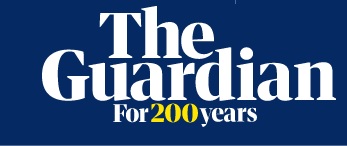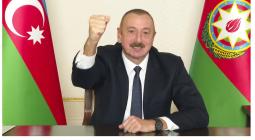Apparently fake social media accounts boost Azerbaijan before Cop29
Exclusive: Linked accounts on X push petrostate’s posts about climate summit and drown out criticism
Scores of apparently fake social media accounts are boosting Azerbaijan’s hosting of the Cop29 climate summit, an investigation has revealed.
The accounts were mostly set up after July, at which time seven of the top 10 most engaged posts using the hashtags #COP29 and #COP29Azerbaijan were critical of Azerbaijan’s role in the conflict with Armenia, using hashtags such as #stopgreenwashgenocide. By September this had changed, with all of the top 10 most engaged posts coming from the official Cop29 Azerbaijan account.
Global Witness, which conducted the analysis, said artificially inflating the reach of government posts was drowning out independent criticism of the country’s record on the climate crisis and repression of human rights.
Azerbaijan’s government will oversee the UN climate summit, which starts on 11 November, and where nations will attempt to deliver the urgent cuts in fossil fuel burning that scientists say are imperative to avoid the most destructive impacts of climate breakdown.
Azerbaijan has significant fossil fuel reserves and intends to increase gas production by 50% in the next decade.
The last climate summit, Cop28, was also held in a petrostate, the United Arab Emirates. In the runup to that conference, an army of fake social media accounts promoted and defended the UAE. Countries failed to agree to “phase out” fossil fuels at Cop28, as many wanted, instead choosing the weaker ambition of “transitioning away from fossil fuels”.
“Azerbaijan is days away from hosting the most important climate event of the year,” said Ava Lee of Global Witness. “It’s vitally important that there is space for a real discussion about what governments must do to address the climate emergency. Yet a network of seemingly inauthentic accounts are replacing rightful criticism with flowery positivity.”
Lee added: “The ease at which these accounts were able to influence the online conversation is concerning, especially as X has deliberately reduced the capacity of its trust and safety teams. We urgently call on X to allow a healthy and authentic debate to flourish around a key global moment.”
Azerbaijan’s ministry of foreign affairs and the Cop29 press office failed to respond to requests for comment from the Guardian.
The Global Witness analysis uncovered 71 suspicious accounts on X. All but six were set up since May, often in bursts. All share nature-related banner and profile images, often flowers or trees, and some accounts used exactly the same images.
More than half of their posts in September used the #COP29 or #COP29Azerbaijan tags and 70% of their retweets were of the official Azerbaijan Cop29 posts or other official Azerbaijan government, party or politician posts. The accounts were also part of a network, with most connected to at least six other suspicious accounts.
An analysis of posts from the first 16 accounts identified showed that on 1 October, 12 of the accounts posted one after the other in a sequence, suggesting the accounts were controlled by one person who logged on to each account in turn. All of this evidence suggests the accounts are fake, though it remains possible that a few are authentic.
Another 111 accounts were identified as posting in support of Azerbaijan Cop29 officials in the same way, but did not share the nature-themed imagery.
At the time of publication, some of the accounts had been suspended, with posts replaced by a message stating: “X suspends accounts which violate the X rules.” Others accounts were “temporarily restricted” due to “some unusual activity from this account”.
A spokesperson for X said: “We have actioned a majority of the accounts that are flagged in this report. Our safety teams are constantly working to thwart coordinated inauthentic behaviour.”
Azerbaijan has a record of using inauthentic social media accounts, which was highlighted by Facebook owner Meta in April 2022. Meta reported: “We disrupted a complex network in Azerbaijan that engaged in both cyber-espionage and coordinated inauthentic behaviour. It primarily targeted people from Azerbaijan, including democracy activists, opposition, journalists, and government critics abroad. This campaign was prolific but low in sophistication, and was run by the Azeri ministry of internal affairs.”



